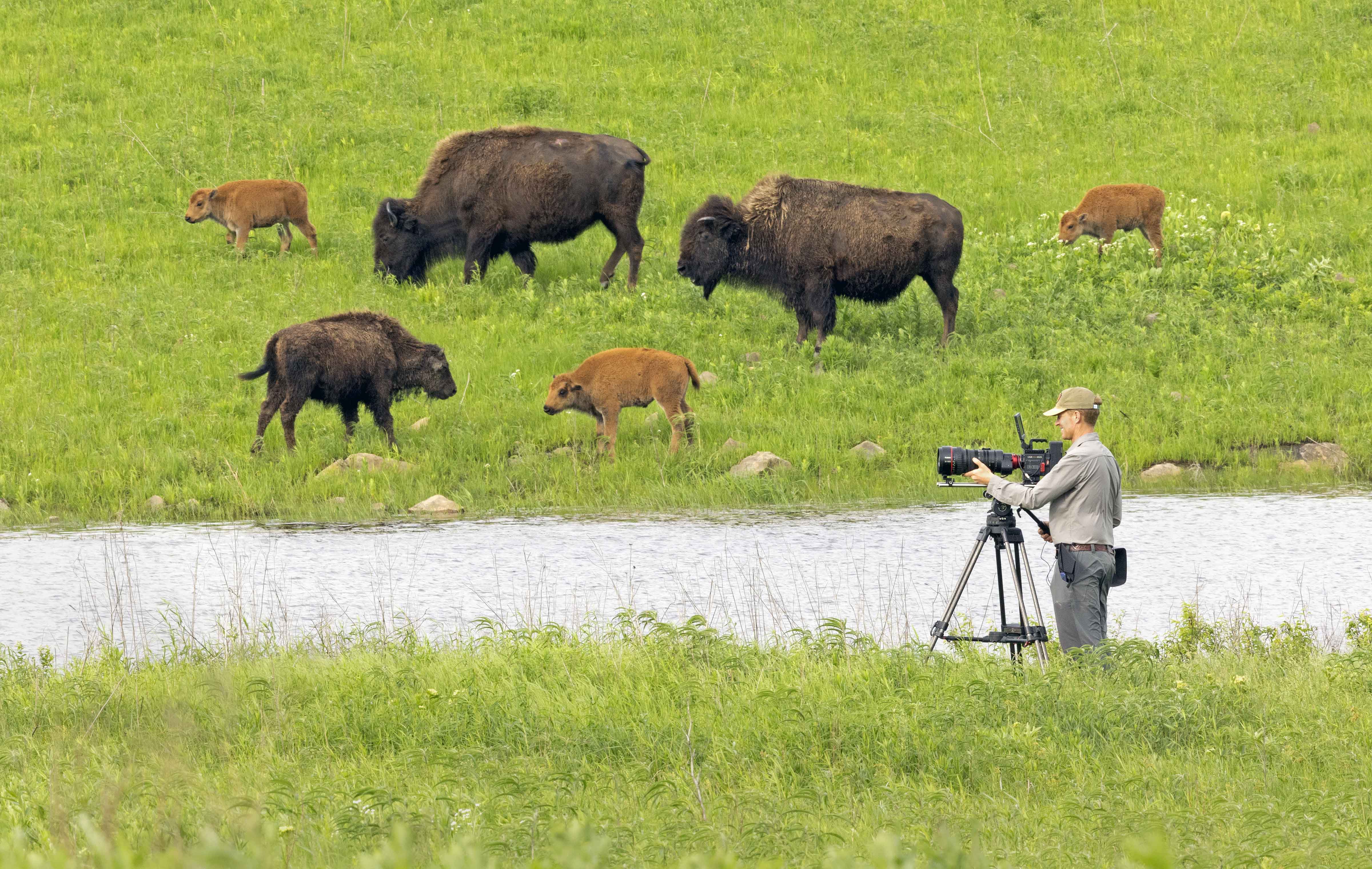
Ken Burns’ latest documentary, The American Buffalo, premieres on PBS October 16. The four-hour series is in two parts and “takes viewers on a journey through more than 10,000 years of North American history and across some of the continent’s most iconic landscapes, tracing the animal’s evolution, significance to the Great Plains, near demise, and relationship to the Indigenous People of North America,” according to PBS.
The stories of Native people, including the Kiowa, Comanche, and Cheyenne of the Southern Plains; and the Lakota, Salish, Kootenai, Mandan-Hidatsa and Blackfeet from the Northern Plains, anchor the film.
The parts air October 16 and 17. The first episode looks at how the buffalo, numbering some 30 million in the early 1800s, is driven close to extinction, with fewer than a thousand bison remaining. The second examines how the number of buffalo escalated once again, thanks in part to Theodore Roosevelt, Texas cattleman Charles Goodnight and Michel Pablo, who lived on the Flathead reservation in Montana, among others.
On October 1, PBS will air The American Buffalo: A Story of Resilience, a discussion about the history and the legacy of the buffalo. The special is a collaboration between Ken Burns, Georgetown University and The Better Angels Society. It sees Judy Woodruff, senior correspondent on PBS NewsHour, moderate a discussion with Burns, indigenous writer and historian Rosalyn LaPier, professor and author Dan Flores and Tribal Buffalo Coordinator for the National Wildlife Federation’s Tribal Partnerships Jason Baldes.
Burns’ films have detailed baseball, country music, Ernest Hemingway and Muhammed Ali, among other topics.







